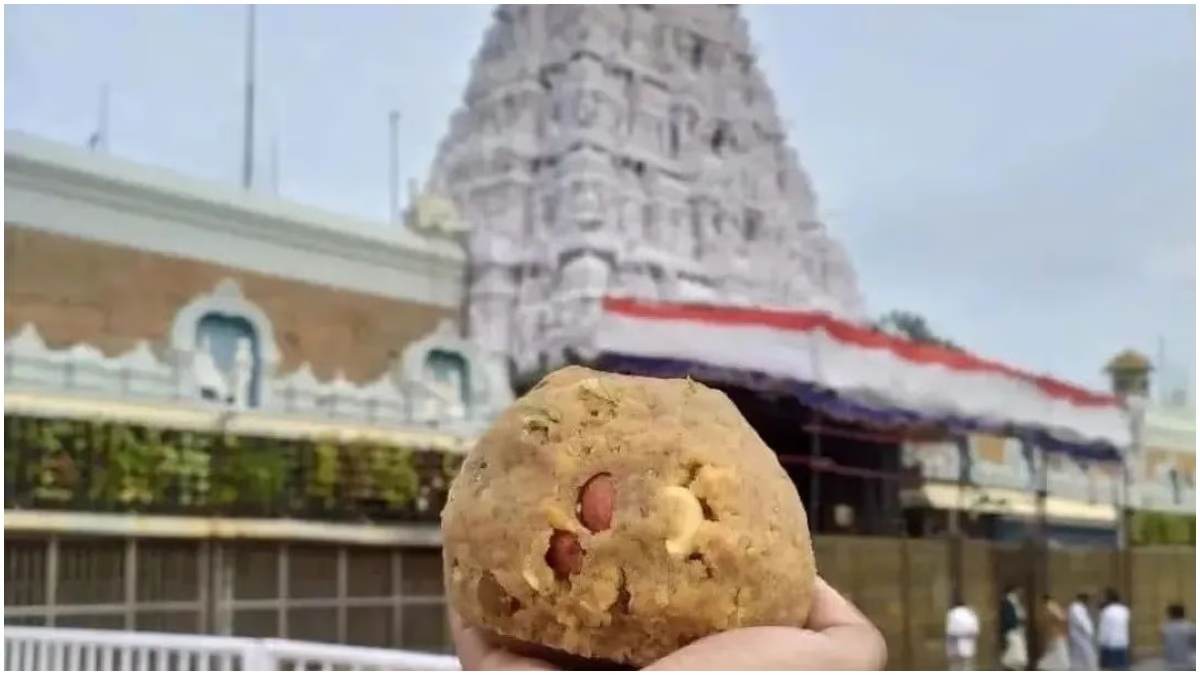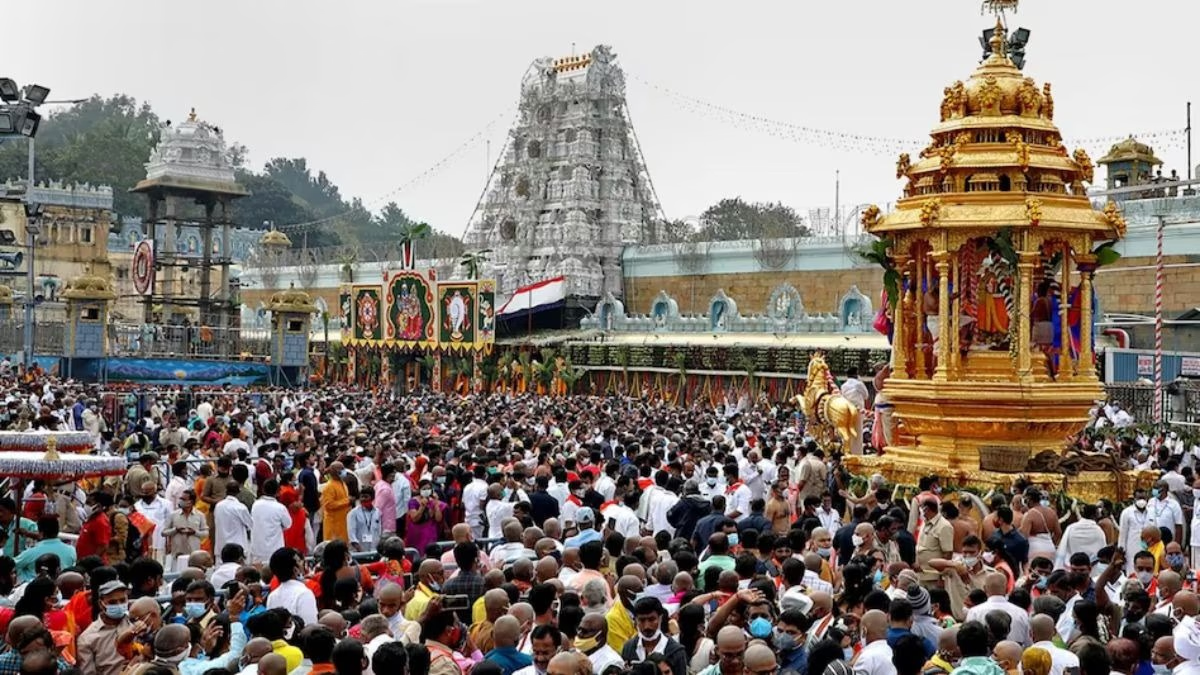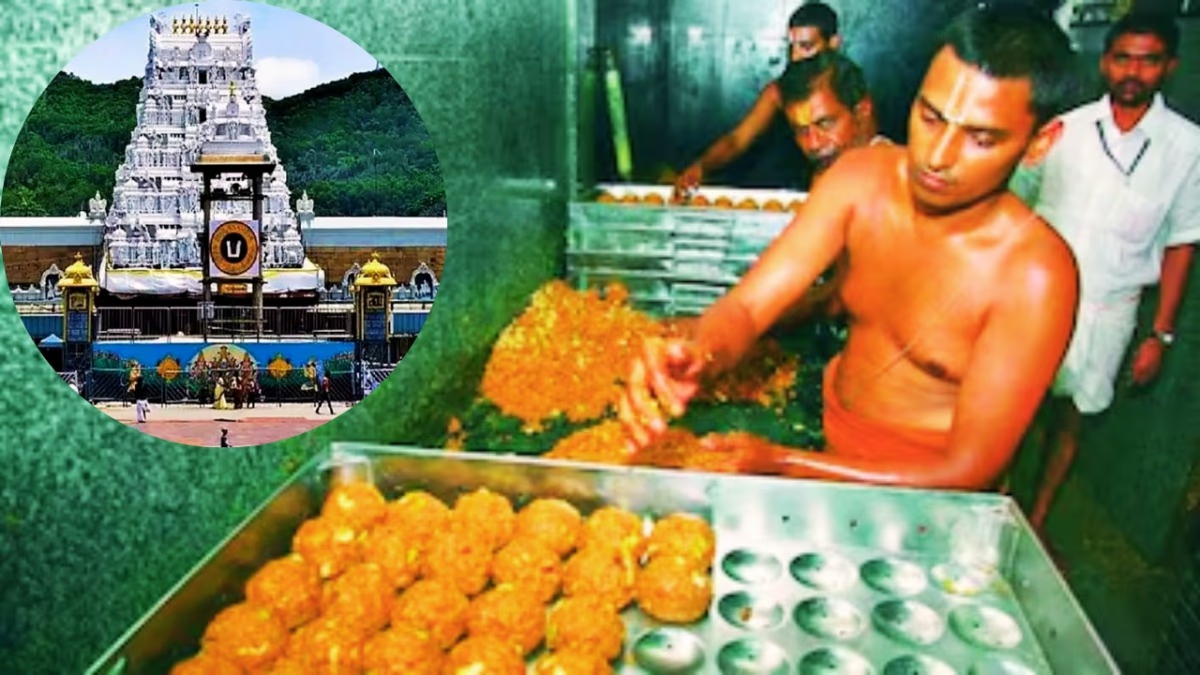The world-renowned Tirupati Balaji temple in Andhra Pradesh is embroiled in controversy over allegations that the ghee used in its laddus contains fish oil and animal fat. The Andhra Pradesh government has claimed that the ghee used in the laddus is adulterated, attributing the issue to contracts given by the previous government. The Tirumala Tirupati Devasthanam (TTD) temple committee has clarified that the contaminated ghee came from a supplier blacklisted during the Jag Mohan Reddy administration.
In response to these accusations, the central government has requested a report from the Andhra Pradesh government and assured action post-investigation. Since this revelation, there has been a wave of outrage among devotees across the nation, leading to protests in cities like Bhopal. Petitions are surfacing from the Supreme Court to High Courts. Politically, the heat is on with BJP leaders demanding capital punishment for the culprits while Congress is questioning why CM Naidu took three months to disclose the issue.
Possible Reasons for False Positive in Investigation Reports
- Samples taken from extremely weak cows- Samples from cows that have recently given birth- Milk samples mixed with milk from other animals- Milk from cows fed with excessive sesame seeds- Sick cows or those exposed to chemicals

Source: aajtak
Jag Mohan Reddy Denies Allegations
Congress has even called for a CBI investigation. Jag Mohan Reddy has dismissed the allegations as baseless and accused Chandrababu Naidu of levying unfounded charges to mask 100 days of governance failure. It is important to note that once the administration changed in Andhra Pradesh, the samples of ghee used in the Tirupati temple's prasad were collected on June 12. The analysis report was ready by June 23; however, the unveiling happened in September after Naidu's government had completed 100 days. The findings revealed that the ghee used to prepare laddus might contain sesame oil, animal fat, and fish oil. This testing was conducted at the National Dairy Development Board's (NDDB) Center for Analysis and Learning in Livestock and Food (CALF) lab.
Adulteration Concerns
The report outlined that the ghee used in these laddus might be adulterated and potentially contains fish oil, animal tallow, and lard. Animal tallow implies fat present in animal meat, and lard refers to fat derived from animals. The document also noted that due to certain circumstances, animal fat and its elements could enter cow ghee, thus generating false positive results in the analysis.

Source: aajtak
Clarification from the Ghee Supplier
The Karnataka Milk Federation, which has been the supplier of pure ghee, clarified that it has only been supplying ghee since July. The supplier under scrutiny is AR Dairy Products Limited, which has stated that it is prepared for the investigation. There were no complaints about its four trucks of ghee, but the fifth truck was stopped. The temple administration mentioned that the company has now been blacklisted, and punitive actions have been initiated.
The tender process for supplying ghee to the temple involves competitive bidding, with the lowest bidder typically receiving the contract. Former temple administration officials claim that 550 indigenous cows are housed at the temple trust's plant to produce pure organic ghee. Additionally, there is an existing system to test the incoming ghee. The temple authorities have been collaborating with the CFTRI lab in Mysore for quality checks on the ghee.




